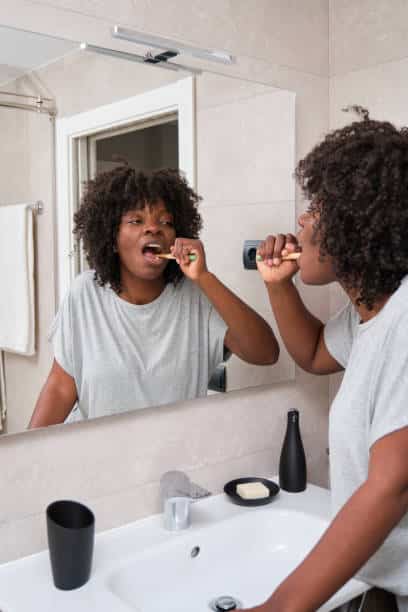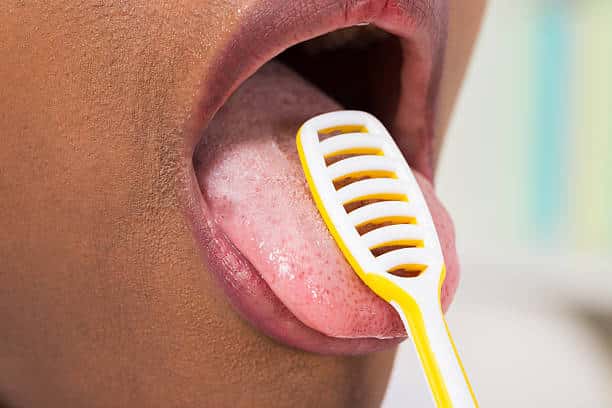Halitosis is a term for bad breath. It can result from poor oral hygiene, certain foods, smoking, or underlying health issues.
Causes of halitosis
Halitosis can be caused by various factors, including:
Poor oral hygiene: Inadequate brushing and flossing can lead to bacterial build-up in the mouth, causing bad breath.

Certain foods and drinks: Foods like onions, garlic, and certain spices can contribute to bad breath, as can coffee and alcohol.

Tobacco use: Smoking and chewing tobacco can cause persistent bad breath.
Dry mouth: Saliva helps cleanse the mouth, so conditions that cause reduced saliva production, like certain medications or mouth-breathing, can lead to bad breath.
Gum disease: Bacteria in the mouth can cause inflammation of the gums (gingivitis) or more severe gum disease (periodontitis), both of which can contribute to bad breath.
Medical conditions: Certain medical conditions such as respiratory infections, sinusitis, acid reflux, diabetes, and liver or kidney problems can lead to bad breath.
Oral infections: Infections in the mouth, such as dental abscesses or oral thrush, can cause bad breath.
Poorly fitting dental appliances: Dentures or braces that don’t fit properly can trap food particles and bacteria, leading to bad breath.
Prevention and treatment of halitosis
Prevention and treatment of halitosis typically involve:
Good oral hygiene: Brushing your teeth at least twice a day and flossing daily to remove food particles and plaque can help prevent bad breath.
Regular dental check-ups: Seeing your dentist regularly for cleanings and check-ups can help detect and address any oral health issues contributing to bad breath.
Tongue cleaning: Cleaning your tongue regularly with a tongue scraper or toothbrush can help remove bacteria and food debris that can contribute to bad breath.

Hydration: Drinking plenty of water helps keep your mouth moist and can help prevent dry mouth, a common cause of bad breath.
Avoiding tobacco: If you smoke or use tobacco products, quitting can improve your breath and overall oral health.
Dietary changes: Avoiding foods known to cause bad breath, such as onions and garlic, can help reduce halitosis.
Mouthwash: Using an antimicrobial mouthwash can help kill bacteria and freshen breath, but it’s not a substitute for good oral hygiene.
Addressing underlying health issues: If halitosis is caused by an underlying medical condition, such as gum disease or sinusitis, treating the underlying issue can help improve bad breath.
If bad breath persists despite these measures, it’s essential to see a dentist or doctor to rule out any underlying health issues and receive appropriate treatment



